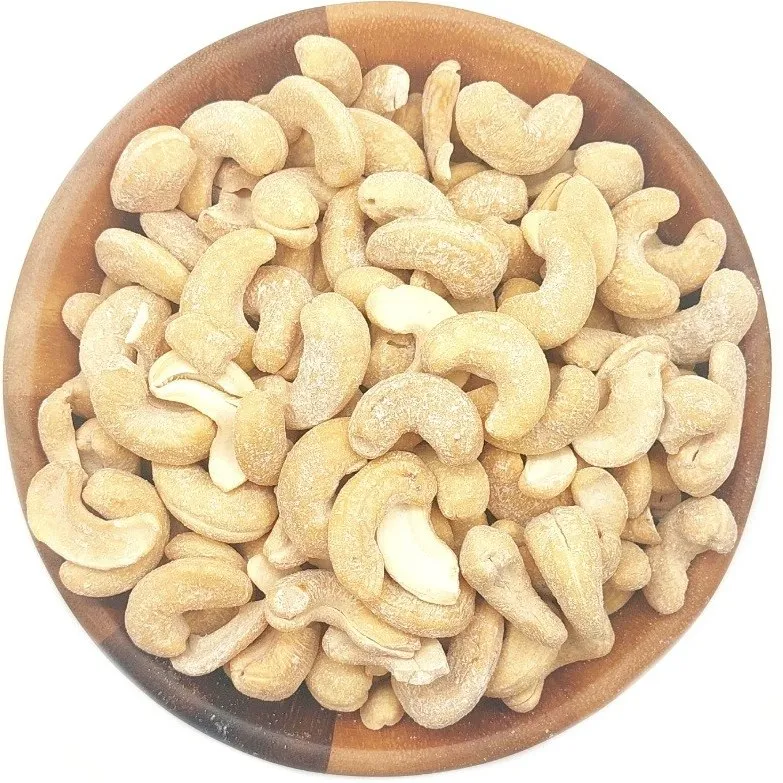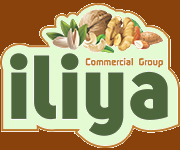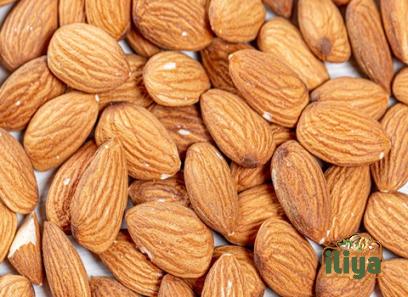The global cashew kernel market has experienced significant growth in recent years, driven by increasing consumer demand for healthy and nutritious snacks, as well as the rising popularity of vegan and plant-based diets. Cashew kernels, also known as cashew nuts, are the edible seeds of the cashew tree, and their rich flavor, texture, and nutritional profile have contributed to their widespread consumption.
Market Overview:
The cashew kernel market is witnessing robust growth, fueled by factors such as increasing disposable income, changing consumer preferences for healthier food choices, and expanding retail networks. Cashew kernels are versatile ingredients that are widely used in the food industry, both as standalone snacks and as ingredients in various culinary preparations. They are also extensively used in confectionery, bakery products, and as toppings in salads and desserts.
Key Market Drivers:
1. Healthy Snacking Trend: As consumers become more health-conscious, there is a growing demand for nutritious snacks. Cashew kernels are rich in vitamins, minerals, and healthy fats, making them an ideal option for health-conscious consumers.
2. Vegan and Plant-Based Diets: The rising popularity of vegan and plant-based diets has boosted the consumption of cashew kernels. They are often used as dairy alternatives in products such as cashew milk, cheese, and butter.
3. Convenience and Portability: Cashew kernels are lightweight, easily transportable, and have a long shelf life, making them a convenient snack that can be consumed on-the-go. This attribute has contributed to their growing popularity among busy consumers.
4. Increased Retail Penetration: The expansion of retail networks globally, including supermarkets, hypermarkets, and online grocery platforms, has made cashew kernels more accessible to consumers. This increased availability has positively impacted market growth.
Challenges in the Market:
Despite the promising growth, there are certain challenges that the cashew kernel market faces:
1. Price Volatility: Fluctuations in the price of raw cashew nuts, caused by factors like weather conditions, currency exchange rates, and global supply and demand dynamics, impact the profitability of cashew kernel processing and can pose challenges for market players.

2. Product Quality and Safety: Ensuring consistent quality and safety standards, including measures for proper storage, processing, and transportation, is crucial to maintain consumer trust. Quality control throughout the supply chain is essential to avoid product recalls and protect the brand image.
3. Environmental and Sustainability Concerns: The cashew industry faces sustainability challenges, including deforestation, greenhouse gas emissions, and water scarcity issues. Implementing sustainable practices and supporting responsible sourcing initiatives are crucial to address these concerns.
Opportunities in the Market:
The cashew kernel market presents several exciting opportunities for industry players:
1. Product Innovation: There is immense potential for product innovation in the cashew kernel market. Manufacturers can explore new flavors, textures, and forms to cater to diverse consumer preferences and create unique value propositions.
2. Growing Demand in Emerging Markets: With the rising disposable incomes and evolving consumer preferences in emerging markets such as India, China, and Southeast Asia, there is a significant opportunity for market expansion in these regions.
3. Private Label and Contract Manufacturing: Private label brands and contract manufacturing agreements offer opportunities for market players to collaborate with retailers and leverage their distribution networks.
4. Health and Wellness Segment: The increasing focus on health and wellness presents a considerable opportunity for cashew kernels as a nutritious and natural snack option. Targeting health-conscious consumers and promoting the nutritional benefits of cashew kernels can drive market growth.
Conclusion:
The cashew kernel market is witnessing robust growth, driven by changing consumer preferences, increasing disposable incomes, and expanding retail networks. While challenges such as price volatility, quality control, and sustainability concerns persist, opportunities for product innovation, market expansion in emerging economies, and tapping into the health and wellness segment are expected to propel the market’s growth. With the right strategies and a focus on quality and sustainability, industry players can capitalize on the evolving trends in the cashew kernel market and carve a successful niche in the global nut industry.Exploring the Dynamic Cashew Kernel Market: Trends, Challenges, and Opportunities
1. Global Market Size and Growth Potential
The global cashew kernel market has witnessed remarkable growth in recent years, and this trend is projected to continue. According to a report by Market Research Future, the market is expected to reach a value of USD 9.29 billion by 2025, growing at a CAGR of 4.3% during the forecast period. The increasing consumption of cashew kernels as a healthy and convenient snack option, coupled with the expanding retail sector and rising disposable incomes, are key drivers of this growth.

2. Rising Popularity of Health Conscious Snacking
In recent years, there has been a significant shift in consumer preferences towards healthier snacking options. Cashew kernels, packed with essential nutrients like protein, healthy fats, vitamins, and minerals, have gained popularity as a healthier alternative to traditional snacks. They offer a satisfying crunch and a rich, buttery flavor that appeals to a broad consumer base, including fitness enthusiasts, dieters, and those looking for guilt-free indulgence.
3. Increasing Adoption of Vegan and Plant-Based Diets
The surge in the adoption of vegan and plant-based diets has created a distinct opportunity for the cashew kernel market. Cashew kernels provide a versatile option for plant-based alternatives to dairy products like milk, cheese, and butter. They are also commonly used in vegan recipes to add richness and creaminess. As the popularity of veganism continues to rise, the demand for cashew kernels as a crucial ingredient in plant-based cooking is expected to grow.
4. Convenience and Portability Driving Consumer Demand
Convenience has become a significant factor influencing consumer snack choices. Cashew kernels, with their lightweight nature, long shelf life, and portability, offer the perfect solution for consumers seeking convenient on-the-go snacks. Additionally, their versatility makes them an ideal choice for busy individuals looking to enhance the flavor and nutritional value of their meals or incorporate them into various recipes easily.
5. Expanding Retail Networks and E-Commerce
The widespread availability of cashew kernels is a significant contributing factor to their market growth. Cashew kernels can be found in various formats, including whole kernels, roasted, salted, or flavored versions, in supermarkets, hypermarkets, health food stores, and specialty food retailers. Furthermore, the rise of e-commerce platforms, such as Amazon and Alibaba, has made these products more accessible to consumers worldwide. This increased retail penetration has facilitated the growth of the cashew kernel market.
6. Price Volatility: A Concern for Market Players
One of the major challenges faced by market players in the cashew kernel industry is price volatility. Fluctuations in the price of raw cashew nuts, influenced by weather conditions, political and economic factors, and global supply and demand dynamics, can pose challenges for both the processors and consumers. It becomes critical for market players to employ effective sourcing strategies, maintain strong supplier relationships, and implement risk management practices to mitigate the impact of price fluctuations.
7. Emphasizing Quality and Safety
Ensuring consistent quality and safety standards throughout the cashew kernel supply chain is crucial to maintain consumer trust and safeguard brand reputation. Adequate storage, processing, and transportation conditions are essential to prevent product contamination, maintain freshness, and extend shelf life. Implementing robust quality control measures, including testing for aflatoxin levels, is necessary to minimize health risks and ensure the delivery of premium quality cashew kernels to consumers.

8. Addressing Environmental and Sustainability Concerns
Sustainability has become a significant focus in the cashew industry, as environmental and social impact concerns have emerged. Deforestation, water scarcity, and greenhouse gas emissions associated with cashew farming and processing have raised awareness about the need for sustainable practices. Market players are urged to support responsible sourcing initiatives, such as Fairtrade certification or partnerships with sustainable farming cooperatives, to address these concerns and promote environmental stewardship.
9. Product Innovation: Meeting Consumer Preferences
To stay competitive in the cashew kernel market, manufacturers need to continuously innovate and cater to evolving consumer preferences. This includes developing new flavors, introducing value-added products such as roasted or flavored cashew kernels, and exploring different forms like cashew butter, cashew milk, or even cashew-based desserts. Conscious efforts to incorporate consumer insights and adapt to changing market trends can differentiate brands and drive market growth.
10. Capitalizing on Emerging Markets
Emerging markets, such as India, China, and Southeast Asia, offer significant growth opportunities for the cashew kernel market. These regions’ rising disposable incomes, increasing urbanization, and shifting consumer food preferences make them ideal markets to tap into. Strategic market entry, leveraging local distribution networks, and catering to regional taste preferences can help manufacturers establish a strong presence and capture a substantial market share in these regions.
11. Private Label and Contract Manufacturing Partnerships
Collaborating with retailers through private label or contract manufacturing agreements presents an opportunity for market players to expand their customer base and leverage established distribution networks. By producing cashew kernels for private label brands or partnering with retailers to co-brand products, manufacturers can access new markets, benefit from established brand loyalty, and enjoy increased visibility and market penetration.
12. Focus on Health and Wellness Segment
In the era of health-consciousness, cashew kernels have an incredible advantage as a natural, nutritious snack option. With the growing interest in functional foods and the demand for clean-label products, highlighting the health benefits of cashew kernels, such as supporting heart health, aiding digestion, and providing essential nutrients, can attract health-conscious consumers. Market players can capitalize on this trend by developing targeted marketing campaigns, positioning cashew kernels as a part of a balanced and healthy lifestyle.
Conclusion:
The cashew kernel market’s growth trajectory is driven by factors such as the rising popularity of health-conscious snacking, growing adoption of vegan diets, convenience and portability, expanding retail networks, and the increasing interest in sustainability. While challenges like price volatility and quality control persist, opportunities for product innovation, market expansion in emerging economies, private label partnerships, and the health and wellness segment offer avenues for market players to thrive. By staying agile, addressing consumer preferences, and embracing sustainability, businesses can position themselves for success in the dynamic and lucrative cashew kernel market.










